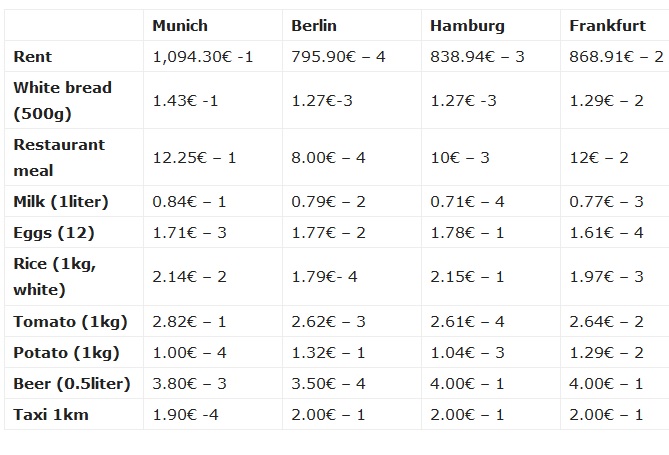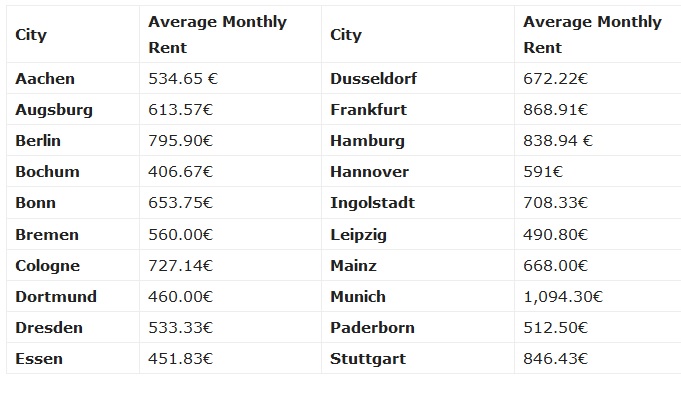
For a long period, Germany has provided several international schools offering positions for TEFLers. So, if you’re planning to live as an international ESL/EFL teacher in Germany, it’s essential to know about the finances of living and teaching English in Germany.
Germany is a geographically miscellaneous nation with a globally focused people. From the sandy seashores in the north to the mountains in the south, Germany is home to one of the most comprehensive school systems in the globe.
Germany is also a comparatively safer country to live and work in. Skilled ESL/EFL teachers in Germany can expect to earn a comfortable living wage.
Living in Germany
Germany is sundry and progressive. The country also has become one of Europe’s most popular choices for both apprentices and overseas teachers. Its contemporary cities, as well as infrastructure, will make your experience simple yet enjoyable.
Larger urban centers such as Berlin or Frankfurt are the popular choices. Germany’s general cost of living is usually very affordable but with various major cities, rent can be expensive. Nevertheless, the spending habits of people vary by the individual of course, but most educators find it easy to save enough money.
Selecting the idyllic place to live in can save you a lot of money. Also, cutting down some additional expenses will support extra savings.
So, which area has the highest cost of living in Germany?
Two of the largest cities, Munich and Stuttgart, are some of the most expensive cities to live in. Generally, renting a one-bedroom apartment in Stuttgart may cost around 846.43€, while a comparable apartment in the northern German city, Bremen, costs 560 € on average. But the capital Berlin is not that affluent.
Leipzig is one of the most inexpensive cities to live in Germany. Further cities around Berlin in the east of Germany are mostly low-priced than their foils in the South. Renting in Leipzig is economical than in Stuttgart by almost over 40%, in Dusseldorf cheaper by 20% than in Stuttgart. The charges in Stuttgart and the biggest city in the North, Hamburg are pretty parallel.

From the above chart, you will see east is the cheapest area in the country.
Usual Rent in Germany
In general, downtown area rents are higher. Larger cities like Munich, Hamburg, Cologne and Frankfurt are chiefly more expensive than other cities are, like Leipzig or Karlsruhe. If you want to live here, we recommend finding someone with whom you can share the apartment and henceforth the renting cost.
Here are the rental prices for a one-bedroom apartment located at the center of the city.

Food Cost in Germany
If you’re planning to save money, eating regularly at German restaurants won’t be a good choice. Usually, a meal for two people at an average restaurant may cost you on average €45. Nevertheless, the price of a meal may differ.
If you want to have a cappuccino instead of a beer you’ll need to pay 2.64 euros. A 0.33 litre bottle of water costs 1.77 Euros and a soda costs 2.17 Euros. Hence, if you know or learn how to cook, you’ll save additional money for sure.
Transportation Charges in Germany
One of the best ways of moving from a destination to another one is using a bicycle, especially in overcrowded cities during rush hours. Among other traveling options you have surely the public transport is the cheapest.
Usually, a one-way ticket on the local public transport costs 2.00€ on average. If you want you can purchase a monthly ticket which costs 70€ average. The primary taxi’s cost is averaged at 3.50. If you own a car then the price of gasoline ranges from 1.25€ to 1.49€.
Usual Utilities Charge
You will need to cover monthly bills for heating, electricity, water, and garbage apart from house rent. In few cases, these bills are included in your rent, so you don’t have to pay any add-ons for these utilities.
In Germany, by law, health insurance is compulsory irrespective of your residence status or your revenue. You will need to get a health insurance plan from the very first day you enter the country. Generally, there are two foremost types of health insurance plans in Germany - public health insurance and private health insurance. You’re free to choose any of these plans.
Additionally, the price of health insurance depends on the kind of insurance plan you elect. The public health insurance charges lower premiums. Presently, the monthly premium rate for this plan ranges from 70 to 80 Euros per month. Now, if you want to cover more medical needs then you must get a private health insurance plan, which usually comes at a higher price.
Apart from these charges, in Germany the quality of clothing is high-end, but so is the price.
Legalise Your TEFL Certificate
Special Regulations On Entry and Residence
Due to the present situation of the coronavirus, establishments and public institutions are only reachable to a limited extent. At present, you should expect that the processing of your visa application will take much longer. Thus, please update yourself about present developments on the website of your responsible German embassy or delegation.
On the other hand, if you already have an entry visa for Germany and cannot enter due to travel restrictions, open entry to Germany from some countries outside the EU has been possible again. The list of these states is getting updated every two weeks. Due to the corona virus pandemic, several employers are dependent on recording short-time work for their employees. Plus, it is anticipated that the employment contract will remain valid once the Corona virus-related restrictions have been lifted.
Qualifications Needed To Teach English in Germany
You will need to have completed a bachelor's degree and, at a minimum, a TEFL (Teach English as a Foreign Language) or TESOL (Teaching English to Speakers of Other Languages) Certification.
The school year usually starts in August or September for public schools and in October for universities. You will get opportunities in top-level private international schools, state-run schools, Volkshochschulen (Adult Education Centres) and private tutoring.
Teachers are responsible for preparing and submitting their visa applications but your employer will also help you out. You will need a passport, two passport-sized photos, an employment contract or letter of intent, and a criminal record check, in addition to the application form and any applicable fees.
Wrapping Up
Germany is Europe’s one of the most significant modern countries. With an advanced TEFL course, you will be qualified for teaching English in Germany. So, before heading off on an adventure to teach English in Germany, these are a few things that you should know about living and working there.
Take your teaching English abroad career to Germany. Contact us now!